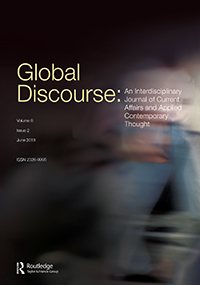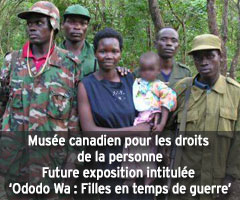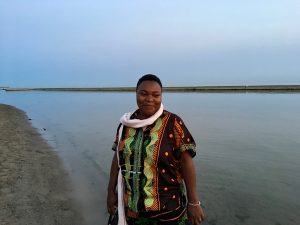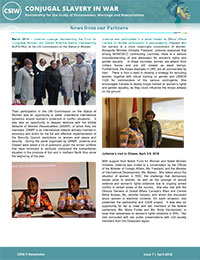[Disponible en anglais seulement]
Author: Annie Bunting, Law & Society, York University, Toronto, Canada
Journal: Global Discourse
Published online: 19 Nov 2018
ABSTRACT
This paper explores the views of victim survivors – both men and women – on the current prosecution of Dominic Ongwen at the International Criminal Court (ICC) for crimes against humanity, including the crime of forced marriage. This case will be used as the central story around which the potential and limitations of international criminal law for gender justice will be explored. The Ongwen case has blurred the lines between victims and perpetrators of child soldiering and has generated much debate within and outside the continent. It has resuscitated the contestation and controversies surrounding the ICC regime in Uganda and Africa more broadly. The reflections I share in this paper come out of a collaborative research project I direct called ‘Conjugal Slavery in War: Partnerships for the study of enslavement, marriage and masculinities’ (CSiW 2015-2020). While Uganda and the Ongwen case will be central to this paper, our research project includes partners working with survivors of conflicts in the Democratic Republic of Congo, Liberia, Sierra Leone, Rwanda and northern Nigeria. We collected well over 250 interviews with women who were abducted for forced marriage. Using interview data from Uganda, as well as court records, this paper explores in-depth the geopolitics and gender politics of prosecuting conjugal slavery as an international crime.






